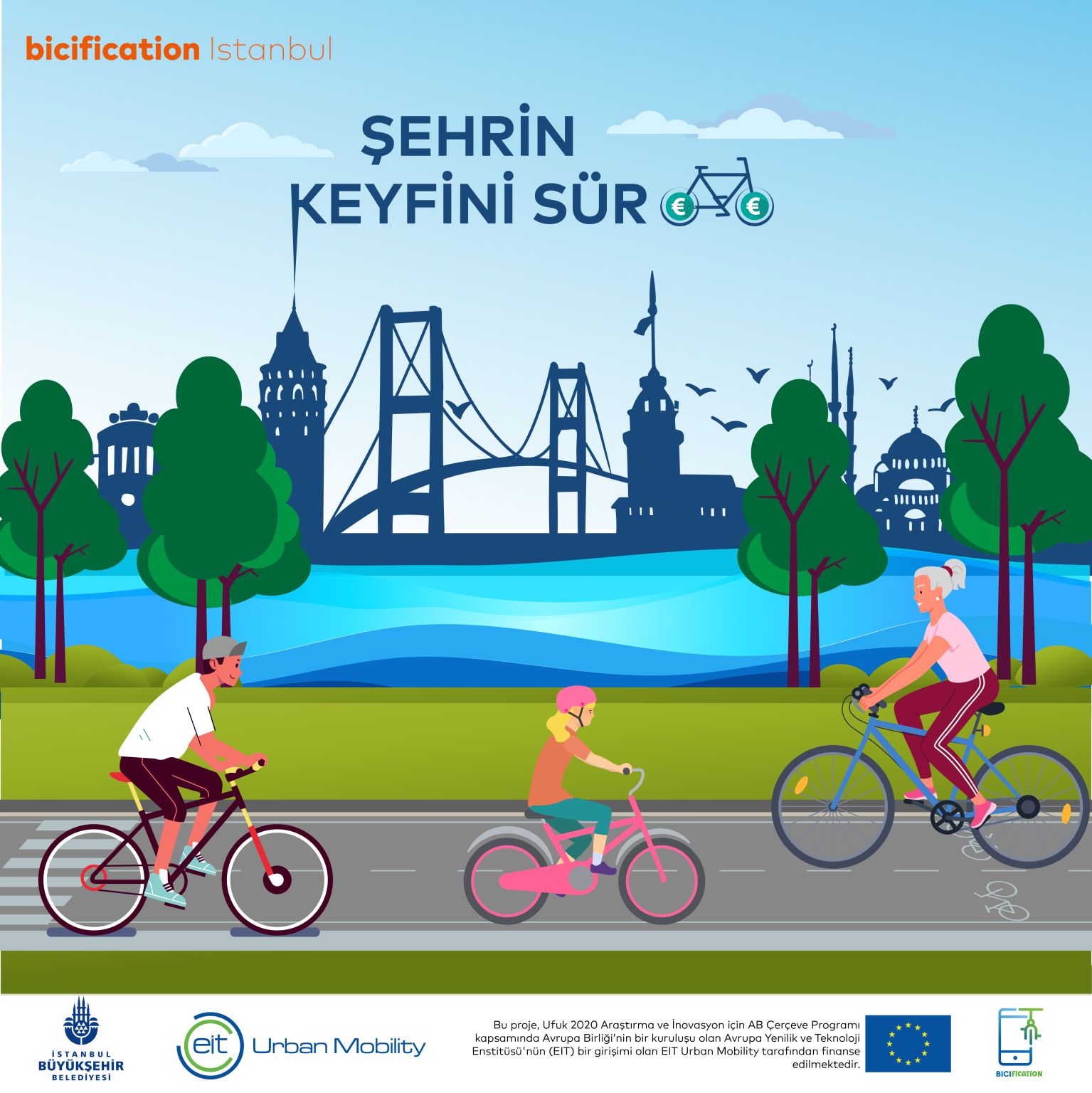Although behavioural nudging has been often used as a method to promote sustainable choices, its application is quite limited in the field of active mobility. BICIFICATION project nudged urban cycling through a gamification and rewarding scheme in Braga, Istanbul and Tallinn during 2022.

Figure 1: All partners involved in the BICIFICATION project.
The scheme was based on a TRL9 antifraud system (hardware and software) patented by Pin Bike to certify, monitor, and reward urban bike rides. Local authorities rewarded urban cyclists with monetary vouchers to be spent in local shops. Cities benefited from valuable cycling data collected for both evaluating already existing mobility measures and infrastructures and investing in data-driven policies. BICIFICATION addressed the cross-cutting themes of inclusion and accessibility, since citizens were able to cooperate through a dedicated app on the creation of local maps pinning cycling-relevant infrastructure and to send reports about infrastructure related barriers (e.g., damaged road signs, insufficient lightening). Thanks to the co-creation features of Pin Bike app and the data collected from the Pin Bike sensors, Braga, Istanbul and Tallinn put accessibility and road safety to the centre of their planning strategies. This bottom-up approach enabled more co-created and data-driven urban planning, decision-making, and investments.
Both qualitative and quantitative data were analysed and provided valuable insights for improving the technological solution and enhancing its replicability in other cities. The aim of the current paper is to present the quantitative (KPIs based) and qualitative (users questionnaires based) assessment that were carried out within the project. Additionally, it will give valuable insights on how additional data analysis results (e.g. weather effects on the trips) could be used by the cities for implementing efficient policy measures to increase bicycle modal share. The project engaged about 1,500 users in 3 different cities, saving more than 133 tons of CO2 in 6 months and spending more than 85,000 euros in local shops. Additionally, more than 90% of the users stated that they will continue cycling after the end of the monetary rewards provided by the project.
BICIFICATION nudged more cycling not only as a low-carbon mode of transport improving urban quality and wellbeing and facilitating social cohesion, but also as an affordable means of transport. Unlike many GPS-based studies about cycling behavior lacking reliable datasets of participants wearing a GPS device or sharing data from their smartphones for a short period of time, BICIFICATION data covered a very large geographical (3 cities) and user scale (almost 1500), enabling evidence-based planning of sustainable and bikeable urban spaces. On the top of this, the correlation between trip, weather and socio-demographic data provided valuable knowledge that can be used to target vulnerable groups and/or to enhance the cycling incentives for bad weather days. By integrating these results into their strategies, cities can more efficiently design and implement future actions and investments to successfully promote greener and more active mobility, ensuring high levels of cycling throughout the year.
For more information and public documents related to BICIFICATION results visit the website here

Figure 1: City of Braga BICIFICATION Poster

Figure 3: City of Istambul BICIFICATION Poster
